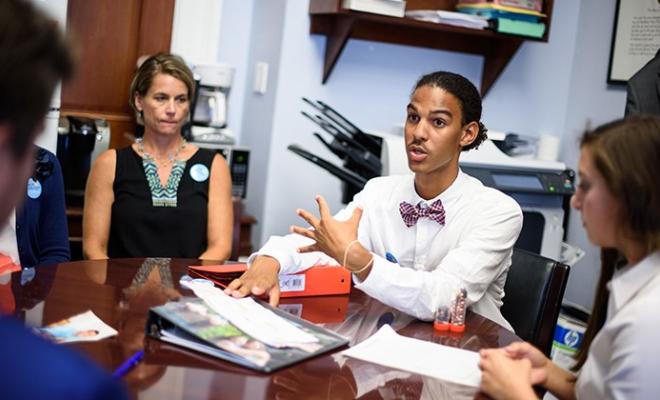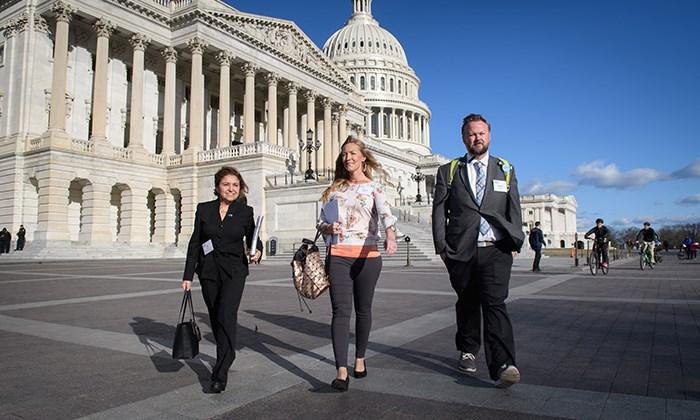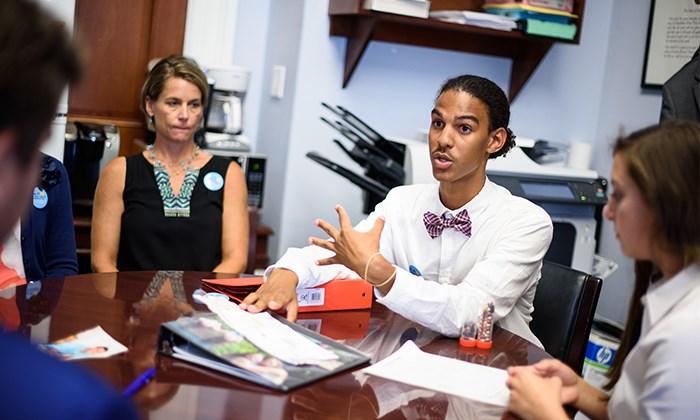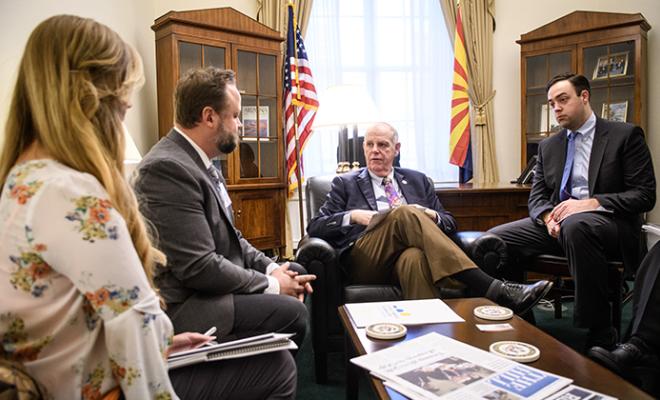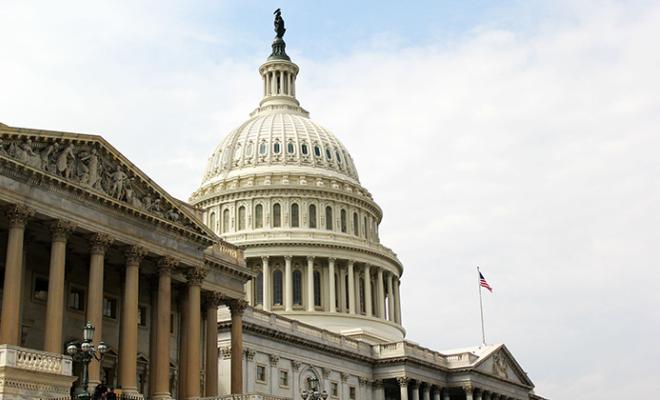Over the past few months, the cystic fibrosis community has seen some significant progress in our work to ensure that everyone with the disease can get the quality, specialized care they need.
The U.S. Food and Drug Administration (FDA) recently expanded the label of ivacaftor for people with cystic fibrosis who have one of five splicing mutations and for people with one of 23 CFTR mutations, potentially affecting about 1,500 people in our community. Last month, we also learned about the positive early study results for the next generation of CFTR modulators.
These advances are filling our community with hope. But we also need to ensure that all people with CF have health insurance so they can access these types of therapies and other treatments that address the chronic symptoms of the disease.
Our advocacy work is about protecting that hope, and last week we saw the impact our efforts can have. After months of debate, the Senate voted to defeat several bills that would have jeopardized access to health care. Over the course of several days, the Senate voted on -- and defeated -- efforts to dramatically cut funding to Medicaid, remove protections against annual and lifetime coverage caps, open the door to bringing back high-risk pools for people with pre-existing conditions, and undermine the stability of the health insurance marketplace, among many other proposals.
All of these plans failed to protect adequate, affordable insurance. In response, CF advocates from across the country made their voices heard. Together, we called, emailed, tweeted, met with members of Congress, attended town hall meetings, and wrote editorials. Our community made sure Congress knew what was important and reminded them of the people at the heart of their decisions.
To see the impact our voices had in this debate, look no further than the state of Maine. At a 4th of July parade, Senator Susan Collins, one of the deciding votes that defeated the Senate's efforts, spoke with a woman whose grandson has CF.
She was concerned that her grandson would not be able to get health insurance because of his preexisting condition. Senator Collins has said in interviews that encounter, more than any other, hit home for her. It reinforced her belief that health care “really cuts across party lines” and directly impacts people of all political stripes.
I'm also reminded of Patrick Kilbaine, an advocate from Ohio who has a young daughter with CF. In an editorial published in the Cleveland Plain Dealer, he wrote “I am concerned about [my daughter's] future medical coverage and worried about her future care. I hope the people who represent my daughter realize the changes they propose could affect how long my daughter lives. It is critical for the new administration to support efforts to have access to life-saving drugs while working on reducing the cost, and maintaining coverage for pre-existing conditions in the new health care law.”
I'm inspired by people like Michaela Myerson, who came to Washington, D.C. from Massachusetts for Teen Advocacy Day on behalf of her two brothers with CF. Michaela helped train 81 teens from around the country along with their parents and guardians to tell their stories and advocate on behalf of their loved ones with CF.
These are just three examples of the countless people who spoke up, told their story, and helped make a difference for people with CF.
Our collective voices are loud and together we can influence policy and legislation that is important to our community. Your personal stories are the single most powerful weapon we have in advocacy. By sharing your experiences, we can help elected leaders understand how the disease impacts people with cystic fibrosis and their families and what we need from health insurance to get the specialized care a disease like CF requires.
The recent advancements in CF treatments and care have given many people in the CF community hope for living longer, healthier lives. But we need to keep advocating to ensure that people with CF can get the care they need at an affordable price.
That's why we need to keep the pressure on Congress. We need to roll up our sleeves and keep making calls, sending letters, and talking face-to-face with our members of Congress to make sure our needs are protected and our elected leaders know what people with CF need to stay healthy.
We don't know yet how Congress and the administration will move forward, but we should all take a moment to appreciate the incredible impact that the CF community had in this debate. Your voice matters, and together we can continue to protect access to high-quality, specialized care.

